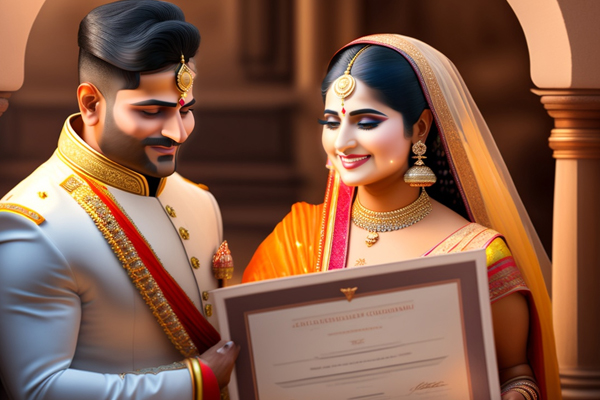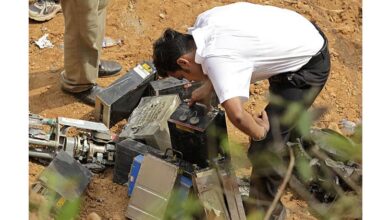Registration of Marriages Without Family Consent Made Tougher in Uttar Pradesh
By Pratham Pandey,Lucknow / 13th June 2025

In a significant policy shift, the Uttar Pradesh government has introduced stricter regulations for registering marriages conducted without the consent of families. The move is aimed at ensuring greater scrutiny in cases where couples marry against the wishes of their parents or guardians. The changes are part of an amendment to the Uttar Pradesh Compulsory Marriage Registration Rules, 2017, notified recently by the state’s Department of Stamp and Registration.
Key Change: Presence of Religious Authority Now Mandatory
Under the revised rules, if a marriage has been solemnised without the consent of the families, the physical presence of a religious authority — such as a pandit, Qazi, or priest — who conducted the ceremony will now be mandatory during the registration process. This clause aims to verify the legitimacy of the marriage and ensure it was conducted as per the established religious customs.
Previously, a couple could register their marriage with documentary proof and the presence of two witnesses. Now, in cases where familial objection is involved, merely having documents and witnesses is not sufficient.
Verification of the Marriage Ceremony
The new amendment requires officials to verify whether the marriage ceremony was duly conducted under religious or customary procedures. The physical appearance of the religious official who performed the rites is meant to confirm that the ceremony indeed took place and was not merely declared on paper for legal purposes.
This step is expected to curb instances of fraudulent claims of marriage, particularly in cases involving interfaith or inter-caste unions, which often occur without the approval of one or both families. The government states that the new rules are intended to “preserve social order” and ensure that all marriages, especially those occurring under contentious circumstances, are transparently recorded.
Background and Context
The amended rules follow an increasing number of petitions in UP courts involving young couples seeking protection after marrying without parental approval. Many such couples report harassment, threats, or forced separations instigated by families displeased with the union. In some cases, even local authorities have hesitated to register such marriages due to social and political pressure.
Previously, under the 2017 rules, couples only needed to apply online or offline and present necessary documents such as age proof, photographs, and the presence of witnesses. The registration could take place without consideration of family consent or the physical presence of the religious officiant.
However, the new rule introduces a distinct procedural burden in cases of familial dissent, which critics argue could be misused to discourage or delay the registration of love marriages, especially inter-religious or inter-caste ones.
Reactions from Civil Rights Groups
The amendment has sparked concerns among activists and legal experts, who fear it could infringe upon the individual freedom of consenting adults. Critics argue that making the presence of a religious authority mandatory could deter couples from registering their marriage, particularly if the priest or Qazi is unwilling to come forward due to social or political pressure.
Civil rights organisations have also warned that the amendment might indirectly support the agenda of moral policing and reinforce societal control over personal decisions. There are also apprehensions that it may lead to increased vulnerability for women, particularly those fleeing abusive or coercive family environments.
Advocates for marriage freedom point out that the Constitution of India guarantees adults the right to marry a person of their choice, and any attempt to complicate that process risks violating these fundamental rights.
State’s Justification
The Uttar Pradesh government has defended the new rule as a measure to prevent unlawful and fraudulent registrations. Officials argue that in the absence of family consent, additional checks are necessary to ensure that the marriage was legitimate and not forced or fabricated.
They also emphasize that the rule does not prevent anyone from marrying but simply adds a layer of verification to protect all parties involved, including vulnerable women who might be coerced or misled into relationships under false pretenses.
Conclusion
While the Uttar Pradesh government’s amendment to the marriage registration rules introduces a formal structure aimed at validation and transparency, it also raises critical concerns about personal freedom, autonomy, and the potential for misuse. As implementation begins, it remains to be seen how the new regulation will impact couples choosing to marry without familial approval, especially in a state already grappling with complex social dynamics related to marriage, caste, and religion.






